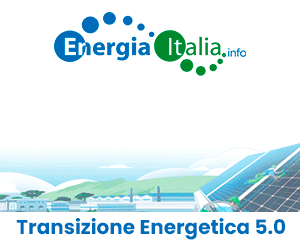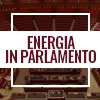Europe risks undermining its future competitiveness by slipping back as a group of other countries emerge to drive the development of low-carbon technologies, according to a new economic analysis. The study finds that Europe’s competitors, including China, India and the United States, have been steadily investing in low-carbon technologies and energy efficiency, and that it is in Europe’s economic interest to remain a part of this evolving group of leaders.
The new report by Climate Strategies is based on a joint analysis by leading economic research institutes, including the German Institute for Economic Research (DIW Berlin), The Institute for Sustainable Development and International Relations (IDDRI) in France and the Grantham Research Institute on Climate Change and the Environment. It finds that although action to protect Europe’s energy-intensive industries is fully justified, energy prices have little impact on the global competitiveness of the majority of the European economy.
“While the EU was preoccupied with the Eurocrisis, many of its competitors have been investing heavily in renewables and energy efficiency, and are increasingly supporting CO2 emission reductions with some form of carbon pricing,” said Henry Derwent, Chief Executive of Climate Strategies. “It takes a lot more than current average energy prices to determine competitiveness. This report aims to inject a fuller global perspective into the debate. Europe’s choices now will determine its standing in the lower-carbon future to which major economies are moving.”
Michael Grubb, Chair of Energy and Climate Policy at Cambridge University and a Climate Strategies Board member, added: “Europe cannot compete in the global economy based on cheap resources. Like Japan in the 1980s, it must compete on innovation and efficiency. Europe currently has a good position on patents across most low carbon technology sectors, but this risks being rapidly eroded. Europe is not ahead on energy efficiency, and renewable energy targets now exist in 138 countries. 66 countries, including Australia, South Korea, South Africa, Canada and Brazil have emulated the feed-in-tarifs widely used in Europe.”
Key findings of the report include:
- 70% of new wind power capacity and 40% of new photovoltaic panels were installed outside Europe in 2012 with China attracting on average 39% of new wind investments in the period 2009 to 2012 and the United States 21%.
- The United States has the highest sales of electric vehicles with about 53 000 new vehicle registrations in 2012, including about 38 000 plug-in hybrid and about 15 000 battery electric vehicles. Japan recorded the highest registrations of battery electric vehicles (16 000 vehicles) in 2012. In European countries, except for Norway, the registration numbers were significantly lower.
- The report entitled “Staying with the Leaders – Europe’s path to a successful low-carbon economy” also addresses the true relationship between energy costs and competitveness. For example, for 92% of Germany’s industry, energy costs are only a very small share of total costs – on average across these sectors 1.6% of revenue. For energy-intensive companies energy price differentials are determined mainly by resource endowment – in particular the price and availability of cheap coal and gas. Special provisions are already in place in Europe to ensure that policies for renewable energy and carbon pricing do not unduly burde energy-intensive companies.
- Energy prices are not included among the indicators of competitiveness in the World Economic Forum’s annual comparison of national competitiveness – the leading source. Only the quality of electricity supply is considered and contributes, with a weight of 1%, to the overall score. An innovation-friendly environment is far more important; despite high energy costs, according to WEF 2013, three European countries, Switzerland, Finland, and Germany, are in the top five countries in terms of competitiveness.
The report can be downloaded here.
































